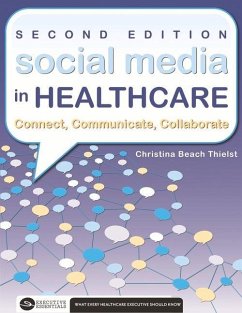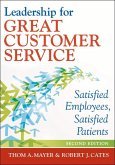Companion Items (click here for access) The growth of social networking has been dramatic, and the applications are quickly finding their way into healthcare organizations. This expanded best-seller provides an overview of the social media tools healthcare organizations are using to connect, communicate, and collaborate with their patients, physicians, staff, vendors, media, and the community at large. It describes the major social media applications and reviews their benefits, uses, limitations, risks, and costs. It also provides tips for creating a social media strategy based on your organization's specific needs and resources. Through real-world examples and up-to-date statistics on social media and healthcare, this book illustrates how social media can improve the efficiency, effectiveness, and marketing of your healthcare organization. A companion website includes examples from leading healthcare organizations that have made the commitment to social media part of their strategic plan. Examples discussed include: Using avatars that allow patients to virtually experience a medical procedure or navigate a hospital's ward Creating a blog to communicate performance improvement initiatives, community health events, information on patient support groups, and other news Applying microblogging technology to post nursing assessments to a patient's electronic health record Navigating the newest social media platforms as technology continues to grow, including Google+, Instagram, Pinterest, Foursquare, and mobile apps Establishing Facebook pages for specific diseases or conditions to build a community of patients facing similar challenges Highlighting centers of excellence by adding research, studies, and reports to appropriate wiki Using existing audio and video for podcasts and videocasts to reach a broader audience
Hinweis: Dieser Artikel kann nur an eine deutsche Lieferadresse ausgeliefert werden.
Hinweis: Dieser Artikel kann nur an eine deutsche Lieferadresse ausgeliefert werden.








